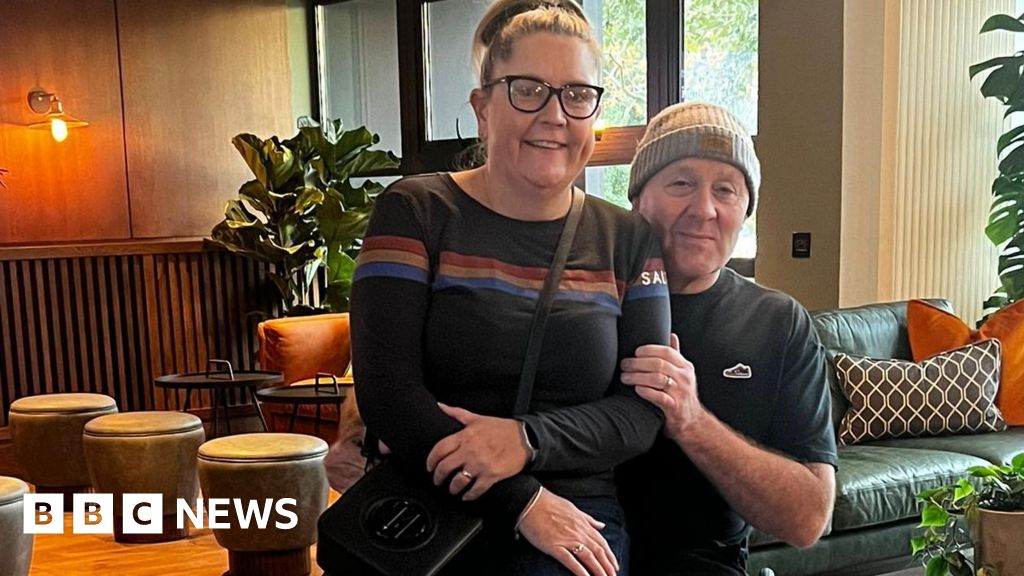"We all possess firearms, but no one will openly admit it," said Ivan M. (38) from Novi Sad. The full names of the people who spoke to DW for this story are known to the author. They agreed to speak on the condition that their full names not be published.
As if to illustrate his claim, Ivan's family remains tight-lipped about exactly what firearms it has.
Ivona R. (40) from Novi Sad, on the other hand, acknowledges that she inherited a gun from her late father, while Goran P. (59) from a small town in the province of Vojvodina makes no bones about the fact that he has been a firearm owner for most of his life.
All those who spoke to DW about firearm ownership in Serbia lead quiet lives and have no imminent security concerns. This is typical in Serbia, where firearm possession often stems from tradition rather than genuine security threats.
 Serbia was shaken by two mass shootings in two days in May 2023Image: Zorana Jevtic/REUTERS
Serbia was shaken by two mass shootings in two days in May 2023Image: Zorana Jevtic/REUTERS"Assessments indicate that civilians here are often better armed than the police," security expert Branislava Kostic explained. "Many own guns for traditional reasons, believing that the head of the household should have one. This cultural norm is evident at events like weddings and celebrations."
High level of civilian firearm ownership
This cultural affinity with firearms is corroborated by the Swiss Small Arms Survey research project, which ranked Serbia third in the world for civilian firearm ownership in 2017, trailing only Yemen and the US. The survey estimates there are 39.1 light weapons per hundred inhabitants in Serbia.
However, two mass shootings that claimed 17 lives and injured 21 on May 3 and 4, 2023 prompted a brief shift in attitudes.
Firearm amnesty launched in 2023
The state responded by launching a comprehensive disarmament campaign. A two-month amnesty encouraged citizens to surrender unregistered firearms without the threat of repercussions. It resulted in the collection of more than 80,000 firearms, more than 4 million rounds of ammunition and more than 26,000 explosive devices. The government hailed it as a resounding success.
 Serbia has the highest level of gun ownership in Europe, with roughly 39 firearms per 100 people, according to the Small Arms Survey research group.Image: OLIVER BUNIC/AFP/Getty Images
Serbia has the highest level of gun ownership in Europe, with roughly 39 firearms per 100 people, according to the Small Arms Survey research group.Image: OLIVER BUNIC/AFP/Getty Images"What was not good was the way those weapons were surrendered, because we have information that people carried bombs on public transport," said Marina Kostic Sulejic of the Professional Association of the Security Sector.
She highlights the need for safer procedures and the professional handling of surrendered weapons.
Surrendered weapons went missing
Moreover, inadequate police protocols led to lapses in firearm storage and record-keeping. Security expert Kostic cites instances where mishandling and theft of surrendered firearms occurred due to a lack of oversight.
One example is the case of a police officer from the city of Nis in southern Serbia who stole 272 pistols that had been handed in at the police station during the amnesty. Local media initially reported that 63 pistols had gone missing. However, poor record-keeping meant that it took a long time to determine exactly how many pistols had been stolen.
 In the weeks that followed the mass shootings, thousands took to the streets to protest violence in SerbiaImage: Zorana Jevtic/REUTERS
In the weeks that followed the mass shootings, thousands took to the streets to protest violence in SerbiaImage: Zorana Jevtic/REUTERSKostic Sulejic believes that such cases were made possible by the speed with which the amnesty was launched and a lack of clear protocols regarding the handling of the collected weapons. As a result, there have been calls for the Interior Ministry to rectify this oversight.
"The lack of transparency regarding the fate of the surrendered weapons raises concerns," she said. "Without knowing whether the weapons were destroyed, stored or possibly sold and dispersed elsewhere, we are left in the dark about what happened to such a substantial quantity of firearms."
'I'll just buy another one illegally'
The people who spoke to DW decided not to surrender their firearms to the police. They were not alone. For this reason, Serbia's law enforcement authorities conducted door-to-door checks to review firearm possession licenses.
Goran P. said that his experience with the police was remarkably positive.
"The officers were courteous and provided clear explanations. It transpired that I would need to pay approximately €200 to keep my firearm," he said. "That's when I decided to surrender it to them. I'll just buy another one illegally. What difference does it make?"
 Students also came out in large numbers to protest violence in Serbian society and demand the resignation of the Serbian President Aleksandar VucicImage: Vesan Lalic/AA/picture alliance
Students also came out in large numbers to protest violence in Serbian society and demand the resignation of the Serbian President Aleksandar VucicImage: Vesan Lalic/AA/picture alliance The experts DW consulted expressed little surprise at this mindset. According to Kostic, it's estimated that there could have been up to 80,000 such cases. Serbs are apparently steadfast in their desire to hold firearms.
Increase in illegal arms ownership?
In light of all this, the government's claim to have reduced the number of registered firearms from 766,665 immediately after the shootings to 575,695 may be a drop in the ocean. Indeed, everything suggests that illegal arms ownership is currently on the rise.
"We are also seeing an increased number of weapons on the streets, which means that there are more on the black market," says Kostic Sulejic. "The question is where they are coming from. It is possible that it's a question of misuse of the weapons that were surrendered. Secondly, a lot of weapons are going to Ukraine, albeit by different routes and with different weapons. So, we don't know. It may be that some of these weapons are returned to the black market."
The normalization of violence in Serbian society
In short, the effectiveness of the government's measures remains questionable. According to research conducted by the Belgrade Center for Security Policy, the government is reluctant to tighten firearm regulations. Proposed reforms, such as strict eligibility criteria and health evaluations, remain unimplemented due to legal constraints.
Serbs protest illegal weapons possession
Furthermore, there are few statistics on societal violence. Despite the disarmament drive, incidents of violence persist, underscoring deep-rooted societal issues. Branislava Kostic emphasizes the normalization of violence in Serbian society, urging holistic solutions that go beyond firearm regulation.
"People are already used to the fact that whoever has power also has the ability to violate all your rights," says Branislava Kostic. "This is one of the characteristics of a society of violence, and according to many criteria, we are definitely becoming a society of violence. One of these criteria is that, over time, people accept violence as being normal."
Edited by: Aingeal Flanagan

 8 months ago
28
8 months ago
28






